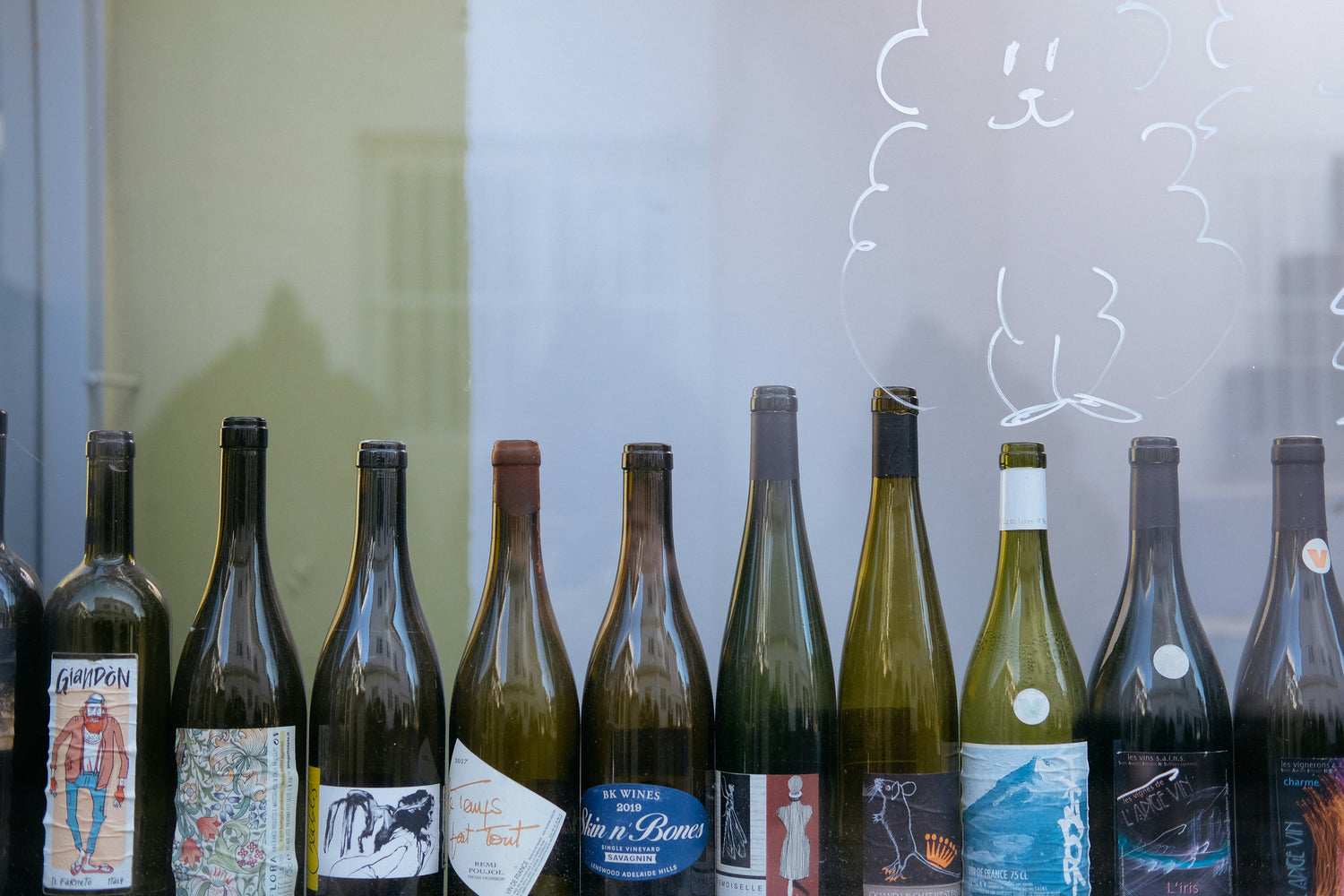Quality Standards
Highest quality standards in the UK
Our journey started when we discovered that even though organic wines are made from organic grapes, they can still contain chemicals in the production process. This made us determined to find the purest and most authentic wines, and it fueled our search for real quality.
Our process involved thorough research and vineyard visits to ensure the authenticity of our wines.
At the core of our values is transparency. We are not just happy, but proud to share our rigorous process of finding the purest wines.
This transparency is a testament to our commitment to delivering the highest quality standards in the UK.
Our process:
- Vet our importers: Our importer is registered with the Soil Association.
- Visit alternative wine fairs such as the Raw Wine Fair, the Real Wine Fair
- Read specialist blogs such as "Not Drinking Poison" and the "The Fiering Line"
- Read specialist's books and listen to podcasts
- Visit vineyards
- Review wine technical sheets from winemakers websites
- Speak to the winemakers and keep a relationship
Our Quality standard:
- Organic or pesticide-free: organic certification sometimes conflicts with minimal intervention winemaking, so we guarantee pesticide-free if there is no certification on the bottle
- Zero additives: Our winemakers prioritise minimal intervention in the winemaking process. They believe that by allowing the grapes to express themselves naturally, without the addition of chemicals or additives.
- Spontaneous fermentation is a winemaking process in which wild yeasts naturally present on the grapes initiate fermentation rather than using cultured yeast strains.
- Indigenous yeasts are naturally occurring microorganisms found on grapes and in the winery environment, which ferment grape juice into wine without the addition of commercial yeast cultures.
- Lower alcohol content: our winemakers often harvest grapes earlier when sugar levels are lower, creating wines with lower alcohol content. It not only provides a unique taste but also offers health benefits to the consumer.
- No or low sulphites: winemakers aim to use minimal sulfites, typically below 30-50mg/L, which is significantly lower than conventional wines. This benefits us by reducing the risk of sulfite-related allergies and headaches for some individuals.
- No added sugar: Our winemakers allow the fermentation process to be fully complete, using only the natural sugars in the grapes, resulting in no added sugar. Conventional winemakers may add sugar to increase alcohol content or sweetness or to restart stalled fermentation.
- Vegan friendly: our wines are often vegan as they avoid animal-derived fining agents like isinglass or egg whites, prioritising natural clarification methods.
- Keto and Paleo-friendly: Our wines are often keto—and paleo-friendly due to their low sugar content and minimal additives.
- Independent vineyards embrace authenticity and ethical practices regarding financial gains and thus remain free from external investors with different values.
- Regenerative farming is not just a practice but a commitment we hold dear. It's vital as it boosts soil health, supports biodiversity, tackles climate change, and protects the environment for future generations.
A note on certifications:
Several natural wine certifications are available worldwide, each with criteria and standards. Here are some of the most common ones:
- Vin Méthode Nature: This French certification is one of the most stringent, requiring organic viticulture, spontaneous fermentation, and minimal intervention in the winemaking process.
- Demeter: This certification focuses on biodynamic practices, which aim to create a self-sustaining agricultural ecosystem.
- Nature & Progrès: This French certification emphasises organic farming and sustainable winemaking practices.
- Biodyvin: This Italian certification is similar to Demeter, focusing on biodynamic principles.
- Terra Madre: This international network promotes sustainable food production and consumption, including natural winemaking.
While these certifications can be helpful for consumers in identifying natural wines, they are not widely used for several reasons:
- Lack of a universal standard: There is no single, globally recognised definition of real wine, making it difficult to establish a consistent set of certification criteria.
- Certification cost and complexity: Certification can be expensive and time-consuming for winemakers, especially small producers.
- Focus on taste and terroir: Natural winemakers prioritise quality and unique character over certification. They believe their commitment to real winemaking practices is evident in the final product, regardless of accreditation.
As the real wine movement evolves, more rigorous and widely recognised certifications will likely emerge.

